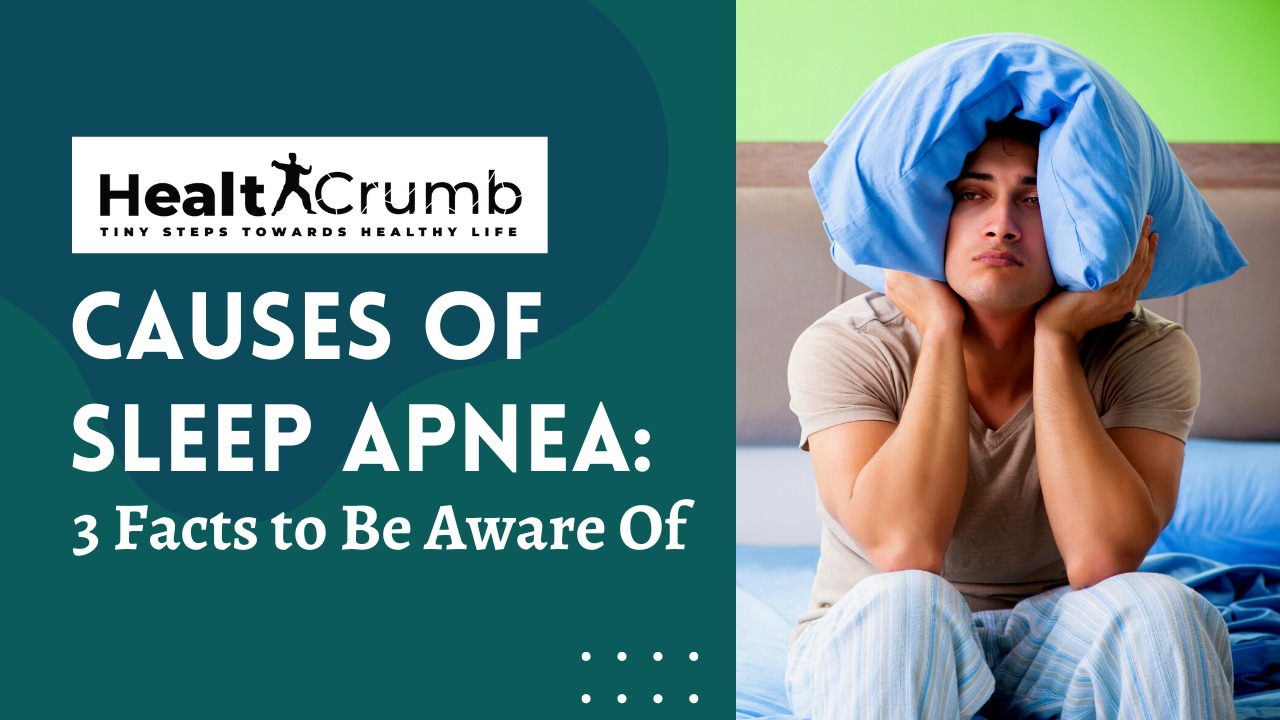Sleep apnea is a condition in which people stop breathing repeatedly during sleep. It is one of the most common chronic health conditions, affecting more than 10 million adults in the United States. Here in the article, we will read about causes of sleep apnea and the three facts you should be aware of if you think you may have sleep apnea:
- Sleep apnea occurs more often in men than women.
- Sleep apnea is associated with higher rates of hypertension, heart disease, diabetes, and stroke.
- Untreated sleep apnea can lead to serious consequences, such as high blood pressure, heart disease, and stroke.
What is sleep apnea?
Sleep apnea is a condition in which people stop breathing during sleep. It is a common problem, and can be caused by several different factors.
People with sleep apnea often have problems with their breathing at night. They may stop breathing for short periods of time multiple times per night. This can cause problems with the way the brain processes oxygen, which can lead to problems with daytime functioning.
There are many different causes of sleep apnea, and it can be difficult to diagnose. If you are worried about your sleep apnea, you should talk to your doctor. He or she will be able to give you a diagnosis and prescribe treatment if necessary.
Causes of Sleep Apnea
There are many different causes of sleep apnea, and each person experiences the condition differently. However, there are some general factors that are often responsible for sleep apnea. These factors include:
- Genetics: Some people are born with a propensity to develop sleep apnea.
- Age: As we get older, our nasal passages tend to lose their elasticity and tend to collapse during sleep. This can cause obstruction of airflow through the nose, leading to sleep apnea.
- Obesity: People who are overweight or obese often have larger tonsils and adenoids, which can contribute to obstruction of airflow in the nose during sleep.
- Other medical conditions: People with certain medical conditions, such as obesity, diabetes, and asthma, are also more likely to develop sleep apnea.
Sleep apnea is a common condition that affects millions of Americans. It can be debilitating and can lead to serious health problems if not treated correctly. If you think you may have sleep apnea, consult your doctor for an examination.
The Different Types of Sleep Apnea
There are several different types of sleep apnea. Each type has its own causes and symptoms.
- POSSA (primary obstructive sleep apnea) is the most common type of sleep apnea. This is when the person’s airway becomes blocked during sleep. This can cause them to stop breathing for brief periods of time.
- OSA (obstructive sleep apnea syndrome) is a more severe form of POSSA. OSA occurs when the person’s airway becomes permanently blocked and they are unable to breathe normally during sleep. This can lead to fatigue, daytime snoring, and other health problems.
- ASA (severe obstructive sleep apnea) is the most severe form of sleep apnea. ASA occurs when the person’s airway becomes blocked so much that they are not able to breathe at all during sleep. This can lead to death in rare cases.
- PMSA (primary mixed apnea) is a type of sleep apnea that combines features of both OSA and ASA. This is the most common type of sleep apnea.
Snoring is the most common symptom of sleep apnea. It can be annoying and cause serious health problems, including heart disease, stroke, and diabetes.
Sleep apnea is treated with a variety of different therapies. These include sleep apnea surgery, sleep apnea drug treatment, and sleep apnea devices.
Fortunately, there are treatments available for all types of sleep apnea. These treatments include surgery, wearing a cpap machine, or using a nasal device called a CPAP pillow. If you are experiencing any of the symptoms listed above, please contact your doctor for advice.
Diagnosis and Treatment
Sleep apnea is a common sleep disorder that can cause significant problems. If left untreated, sleep apnea can lead to a number of health problems, including high blood pressure, heart disease, stroke, and even death.
There is no one cause of sleep apnea, but it is often associated with other medical conditions, such as obesity and snoring. The severity of sleep apnea correlates with the number of episodes of apnea per night.
If you are diagnosed with sleep apnea, your doctor will diagnose the condition and recommend treatment. Treatment typically includes medication and/or surgery. Most people find that medication treatments work well enough to keep their symptoms under control. For some people, however, surgery may be the best option.
If you are concerned about your sleep apnea and would like to learn more about it, please visit our website for more information.
Conclusion
If you are one of the millions of people who suffer from sleep apnea, it is important to be aware of the three main causes so that you can take steps to correct them. If left untreated, sleep apnea can cause significant problems such as snoring, feeling tired throughout the day, and even cardiovascular disease down the road. By learning more about what causes sleep apnea and how to treat it, you canimprove your quality of life and leave behind a troublesome condition for good.



